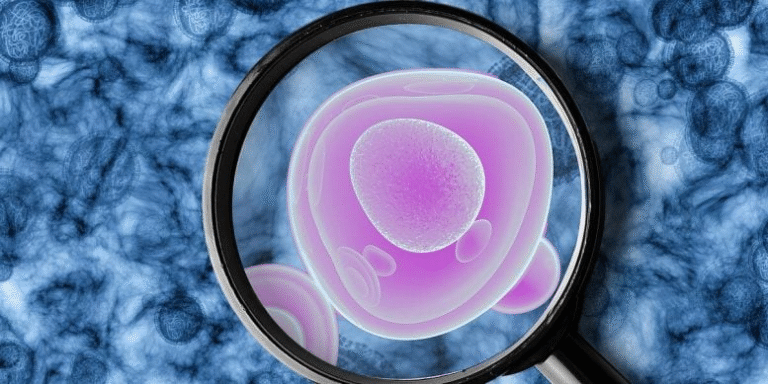How a New Diet Slowed Aggressive Brain Tumors in Mice
Scientists at the University of Michigan have uncovered a striking new vulnerability in glioblastoma, the most aggressive and deadly form of brain tumor. Their findings, published in Nature on September 3, 2025, show that changing the diet of mice with glioblastomas not only slowed tumor growth but also improved the effectiveness of conventional treatments like chemotherapy and radiation.
Patients diagnosed with glioblastoma typically survive only one to two years, even with standard therapies that combine surgery, radiation, and chemotherapy. One reason for this poor prognosis is that glioblastoma cells quickly become resistant to treatment, thanks to what researchers call metabolic rewiring—the ability of cancer cells to change how they process nutrients.
How Glioblastoma Cells Hijack Sugar
The Michigan team, which included experts from the Rogel Cancer Center, the Department of Neurosurgery, and the Department of Biomedical Engineering, investigated how glioblastoma tumors metabolize glucose. They discovered that unlike healthy brain cells, which use sugar to generate energy and support brain function, glioblastoma cells divert sugar into making molecules such as nucleotides—the building blocks of DNA and RNA. This diversion allows tumors to multiply and invade surrounding tissues more aggressively.

Credit: Justine Ross, Michigan Medicine
The study involved injecting labeled sugar into both mice and human patients with brain tumors to track how glucose was processed. Results showed a clear split: normal brain tissue used sugar for energy and neurotransmitters, while tumors used it to build more cancer cells. Researchers described this as a kind of “metabolic fork in the road,” where healthy tissue and cancerous tissue make very different choices about how to use glucose.
Amino Acids as a Weakness
The team also found differences in how tumors handled amino acids, the building blocks of proteins. Normal brain cells make amino acids from sugar. Glioblastomas, however, shut down this pathway and instead scavenge amino acids directly from the blood.
This discovery led researchers to ask: what happens if the blood supply of these amino acids is reduced? Specifically, they focused on serine and glycine, which are critical for tumor growth.
In experiments, mice were placed on an amino-acid restricted diet with reduced serine and glycine. The results were dramatic. Tumors shrank, treatment responses improved, and mice on the restricted diet lived longer compared to those on normal diets.
Combining Diet With Therapy
Radiation and chemotherapy are standard for glioblastoma patients, but tumors almost always come back stronger. The restricted diet appeared to make cancer cells more vulnerable to these treatments. In other words, cutting serine and glycine starved the tumor of critical building blocks while also boosting the effect of conventional therapies.
To better understand this, the team built mathematical models of glucose usage in brain cells and tumor cells. These models showed that cancer pathways were like busy highways, whereas normal brain pathways were more like quiet backroads. Blocking a busy highway has a much greater effect than blocking a quiet road, and this insight suggests that targeting tumor-specific nutrient pathways could yield effective therapies with minimal impact on healthy tissue.
Next Steps: Human Clinical Trials
Encouraged by these findings, the researchers are preparing clinical trials to test whether specialized diets that reduce serine and glycine can help glioblastoma patients. The idea is to exploit the tumor’s dependency on scavenging these amino acids, while normal brain cells remain largely unaffected.
The work was made possible through a multidisciplinary collaboration across the university, involving radiation oncologists, neurosurgeons, physiologists, and biomedical engineers. This broad expertise allowed the team to move from basic lab studies into patient-oriented insights, increasing the chance of translating these findings into real-world therapies.
Funding and Conflicts of Interest
The research was extensively supported by the National Cancer Institute (NCI), the National Institute of Neurological Disorders and Stroke (NINDS), the Damon Runyon Cancer Foundation, the Ivy Glioblastoma Foundation, the American Cancer Society, the American Brain Tumor Association, and several other organizations and foundations.
Some of the lead researchers disclosed consulting roles and patents related to cancer treatment. For example, Daniel Wahl has consulted for pharmaceutical companies including Agios Pharmaceuticals and Bruker, while other team members are co-inventors on patents for brain tumor treatments. These disclosures reflect the active efforts to translate metabolic research into therapies and potential new drugs.
Why This Matters
Glioblastoma has long been one of the most treatment-resistant cancers. By identifying and targeting its unusual nutrient dependencies, this study opens the door to dietary strategies as complementary cancer therapies. If these findings translate successfully into human trials, patients could one day see improved survival times and better treatment responses from something as simple as a carefully controlled diet.
TLDR
University of Michigan researchers discovered that glioblastomas hijack sugar and scavenge amino acids differently than healthy brain cells. In mice, diets lacking serine and glycine slowed tumor growth, boosted therapy effectiveness, and improved survival. Clinical trials in humans are being planned.
Research Paper: Rewiring of cortical glucose metabolism fuels human brain cancer growth (Nature, 2025)





